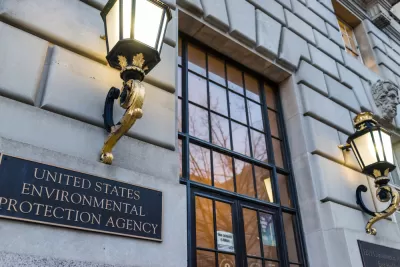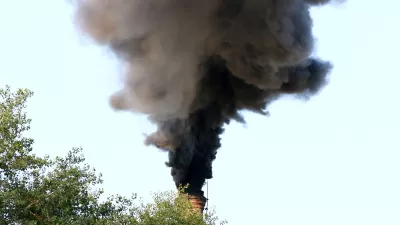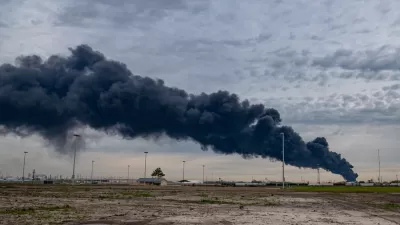Experts on housing law discuss the potential repercussions of a recent Supreme Court decision that struck down the EPA’s authority in limiting greenhouse gas emissions. Could conservative judges apply the same rationale to limit HUD's authority?

Although the Supreme Court’s June decision in West Virginia v. EPA squarely focused on the federal government’s powers to combat climate change, the ruling sent a tremor though the lawyers and advocates who fight to make sure communities provide fair access to housing and work to desegregate their neighborhoods.
In a 6-3 vote, the court’s conservative majority struck down the Environmental Protection Agency’s Clean Power Plan, saying Congress had never given the EPA clear authority to limit greenhouse gas emissions. While the ruling was not unexpected, its dependence on a judicial theory called the “major questions doctrine” raised concerns that the conservative justices could use it to knock out other parts of the administrative state they disagree with.
The question of how much authority Congress can delegate to government agencies like the FDA and OSHA has come up in previous cases, but the EPA suit is the first where a majority decision explicitly cited the major questions doctrine.
In a dissenting opinion, Justice Elena Kagan argued that the Clean Air Act gives the EPA ample authority to regulate any air pollutants, including greenhouse gases, and cited the concept of Chevron deference, in which courts honor agency interpretations of ambiguous laws. But Chief Justice John Roberts rejected her take on the case, writing in the majority decision that “it is not plausible” that legislators gave...
FULL STORY: Could This Supreme Court Ruling Affect Fair Housing?

Trump Administration Could Effectively End Housing Voucher Program
Federal officials are eyeing major cuts to the Section 8 program that helps millions of low-income households pay rent.

Planetizen Federal Action Tracker
A weekly monitor of how Trump’s orders and actions are impacting planners and planning in America.

Ken Jennings Launches Transit Web Series
The Jeopardy champ wants you to ride public transit.

Rebuilding Smarter: How LA County Is Guiding Fire-Ravaged Communities Toward Resilience
Los Angeles County is leading a coordinated effort to help fire-impacted communities rebuild with resilience by providing recovery resources, promoting fire-wise design, and aligning reconstruction with broader sustainability and climate goals.

When Borders Blur: Regional Collaboration in Action
As regional challenges outgrow city boundaries, “When Borders Blur” explores how cross-jurisdictional collaboration can drive smarter, more resilient urban planning, sharing real-world lessons from thriving partnerships across North America.

Philadelphia Is Expanding its Network of Roundabouts
Roundabouts are widely shown to decrease traffic speed, reduce congestion, and improve efficiency.
Urban Design for Planners 1: Software Tools
This six-course series explores essential urban design concepts using open source software and equips planners with the tools they need to participate fully in the urban design process.
Planning for Universal Design
Learn the tools for implementing Universal Design in planning regulations.
Ada County Highway District
Clanton & Associates, Inc.
Jessamine County Fiscal Court
Institute for Housing and Urban Development Studies (IHS)
City of Grandview
Harvard GSD Executive Education
Toledo-Lucas County Plan Commissions
Salt Lake City
NYU Wagner Graduate School of Public Service





























